Hamar Imre, Vice President and Dean of the Confucius Institute of Eötvös Loránd University in Hungary, accompanied by Ye Qiuyue, Director of the Department of Chinese Affairs and Deputy Director of the Belt and Road Research Center of the university, as well as Huang Qiaoqiao, Vice Chairman of the Taizhou Federation of Returned Overseas Chinese, visited Taizhou University on April 26th. Le Chuanyong, President and Deputy Secretary of the Communist Party of China (CPC) TU Committee, met with the delegation and delivered a speech. Li Jianjun, Vice President and member of the Standing Communist Party of China (CPC) TU Committee, presided over the meeting. Relevant leaders from TU’s General Administration Office, Humanities and Social Sciences Department, International Exchange and Cooperation Department, School of Humanities, and School of Art and Design participated in the talks.
On behalf of TU, Le Chuanyong gave his warm welcome to Hamar Imre and his delegation. He introduced the characteristics of Taizhou and the history and achievements of Taizhou University. He hoped that through this meeting, the two universities could further consolidate consensus, seek better and more pragmatic cooperation methods, achieve more and more effective cooperation results, and lay a solid foundation for future cooperation and exchanges.
Hamar Imre, a renowned Hungarian sinologist, expressed in fluent Chinese his gratitude for the warm reception of TU. He said that the exchanges between the two universities had achieved initial effect and he was full of expectations for future cooperation. He sincerely invited TU delegation to visit Eötvös Loránd University to strengthen ties and promote in-depth cooperation between the two universities.
At the meeting, the participants discussed cooperation in education, teacher-student exchanges, and scientific research, and reached a consensus on cooperation. Le Chuanyong and Hamar Imre signed the “Memorandum of Understanding Between Eötvös Loránd University and Taizhou University” on behalf of TU and Eötvös Loránd University, respectively. After the talks, Hamar Imre visited the campus accompanied by Wang Aiqin, Deputy Director of the International Exchange and Cooperation Department, and gave high praise to the beautiful environment and complete facilities.
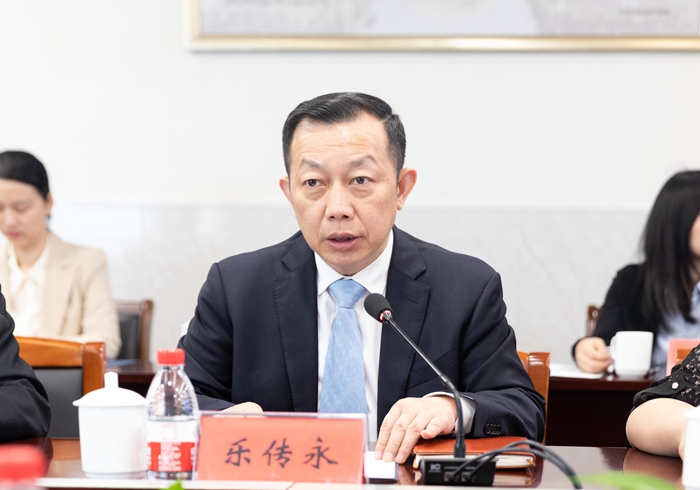
Le Chuanyong, President and Deputy Secretary of the CPC TU Committee, delivers a welcome speech
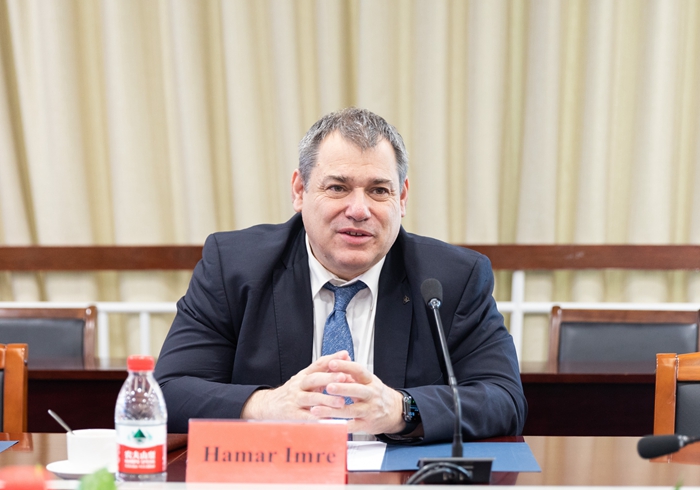
Hamar Imre, Vice President and Dean of the Confucius Institute of Eötvös Loránd University in Hungary, delivers a speech
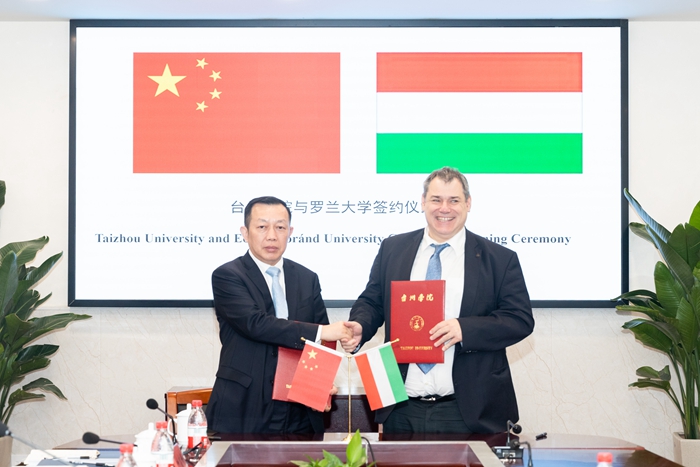
Signing ceremony between TU and Eötvös Loránd University
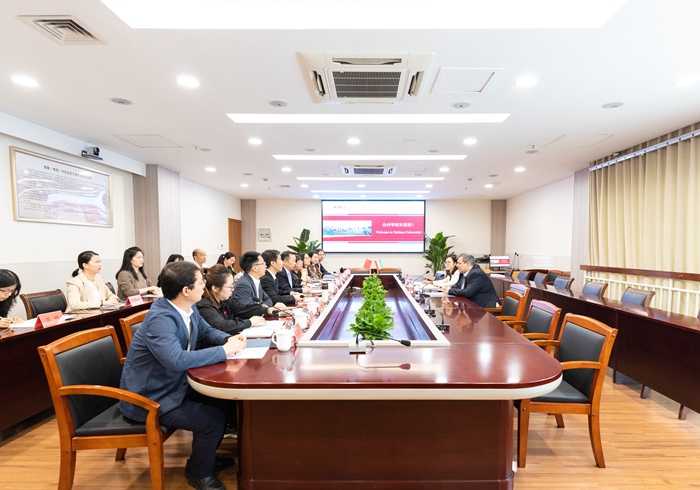
Meeting between TU and Eötvös Loránd University
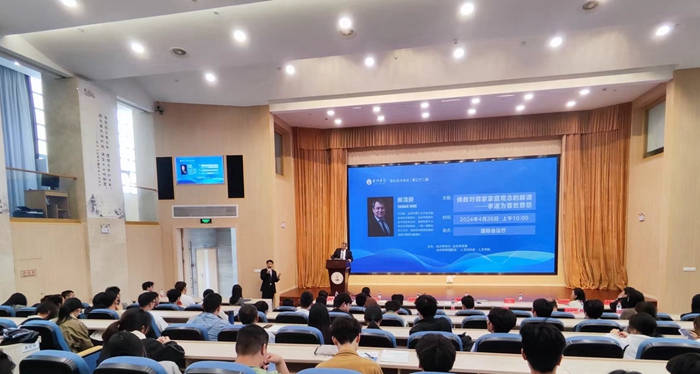
Hamar Imre presents a lecture
On the same morning, Hamar Imre was invited to give a lecture titled “The Buddhist Interpretation of the Confucianist Concept of Family Values: Filial Piety as Universal Compassion” to nearly 200 teachers and students in the International Conference Hall. Li Jianjun presided over the lecture.
Hamar Imre pointed out that since the spread of Buddhism, filial piety, as the main moral behavior of Confucianism, has played a very important role in the process of Sinicization of Buddhism. In the process of a paradigm shift in understanding, filial piety has become universal love or compassion for all beings, which is the most important motivation for all Mahayana behaviors. Hamar Imre used Chinese throughout the lecture, citing classics and explaining in a simple and humorous way, and won applause from the audience.
Li Jianjun pointed out that Hamar Imre conducted multidimensional thinking and specialized research from a global perspective, by explaining how Buddhism sinicizes and is compatible with Chinese Confucianism in cross-cultural comparisons, making it conform to China’s national conditions and Buddhist teachings. With textual support and literature interpretation, this was a very exciting lecture.
Eötvös Loránd University is the top university in Hungary, located in Budapest, the capital of Hungary. Founded in 1635, it is a comprehensive higher education institution covering various disciplines. So far, it has produced six Nobel Prize winners, many world-renowned scientists, and several Hungarian national political leaders.